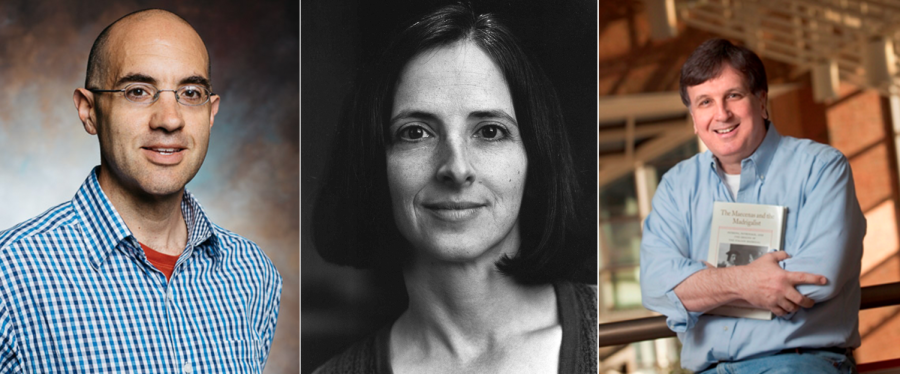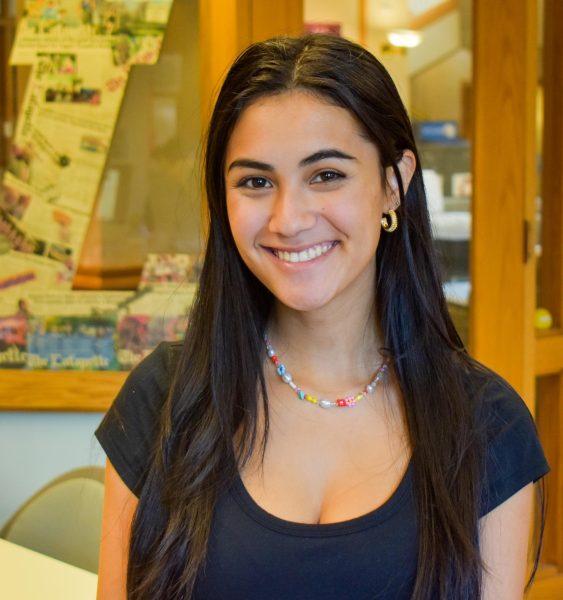Three professors have recently been awarded endowed chairs, transferring their income funding from tuition dollars to specific donor dollars. While full professorship is the highest professional achievement in the field of academia, endowed chairs are an extra way to earn recognition.
Helena Silverstein was named the Thomas Roy and Lura Forrest Jones Professor of Government & Law. Silverstein also serves as the head of the department.
“It was really gratifying,” Silverstein said. “It was exciting to learn about it. It felt just really welcoming and good to be acknowledged for the work that I do.”
Silverstein first came to Lafayette in 1992 as an assistant professor right after completing graduate school. She was promoted to full professor in 2006 and became head of the department in 2007.
“My time at Lafayette has been really, really gratifying, quite productive and different over the years,” Silverstein said. “But at the core of [my work] is education and the advancement of knowledge.”
Silverstein said that one of her favorite aspects of her job is the breadth and size of her department. This allows for unique interdisciplinary interactions with other departments.
“We continue to do a really good job of recruiting faculty in the department and growing the department so that it allows us to expand our curriculum and also allows us to engage with other departments and programs,” Silverstein said. “And so I think one of the real strengths of the department is that it is very connected to any number of interdisciplinary programs.”
Besides the recently endowed chair, Silverstein said that she is the proudest of her students and her research.
“I’m just so happy to have watched them develop and grow and thrive and flourish in the world,” Silverstein said. “I’m proud of some of the research that I’ve published and that that has had a measure of impact in the world.”
Anthony Cummings was named the Eugene H. Clapp II ’36 and Maud Millicent Clapp Professor of Music and coordinator of the Italian Studies program. Cummings echoed Silverstein in praising the interdisciplinary opportunities made possible by Lafayette.
“I get to have a lot of contact with colleagues from other departments … Something about Lafayette that I really like is that the whole experience is a little more interdisciplinary and interdepartmental,” Cummings said.
Cummings said that the endowed chair, which was inherited from recently retired and highly respected art professor Ed Kerns, was an incredible way to be recognized.
“Once you’re promoted to full professor, and I came here in 2006 as a full professor, there’s really no more advancement in that sense other than something like an endowed professorship,” Cummings said. “And it’s an honor. And I feel very, very honored.”
Reflecting on his career at Lafayette, Cummings said he loves the music department but thinks that there are improvements to be made before he retires. Among these, he called for more focus on non-European and digital music.
“I think the department is still too focused on European classical music … I think we need to reposition the department and begin to do a broader range of kinds of music,” Cummings said. “And I’ve also been an advocate for doing more in the area of digital music making, and we’ve gotten a very good start there. But I think there’s a lot more to do.”
Justin Corvino was named the Marshall R. Metzgar Professor of Mathematics. Corvino lived near Lafayette in high school and would visit the school often with his father. He took courses at the college, which was the catalyst for his future research.
“When you’re visiting as a kid … I always felt like I don’t quite belong,” Corvino said. “[When I] come back now, I feel like I do belong.”
Corvino said that his department is unique in how large it is for a small liberal arts college. He emphasized how supportive the department is to both majors and non-majors.
“The math department is a great place. People are really dedicated to the students in ways that I can’t even go into,” Corvino said. “But really, there’s dedication and support for people doing a number of things, whether it’s service, teaching or scholarship.”
Moving forward, Corvino expects to see more modern forms of mathematics, such as data modeling, offered by the department.
“The department is trying to do a lot of things and serve a lot of students with different interests,” Corvino said. “So trying to change with the times and offer more in terms of data science and modeling, as well as pure math. I’m just trying to do my part to see if I can help it move along to best serve the college community.”
Correction 01/31/23: The Lafayette incorrectly interpreted a statement from Justine Corvino to suggest that he held a certain opinion. His quote has been changed to reflect that he simply expects to see new forms of mathematics, instead of actively wants to see them.



























































































































